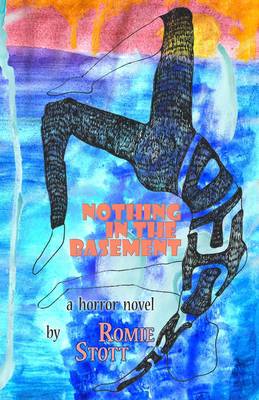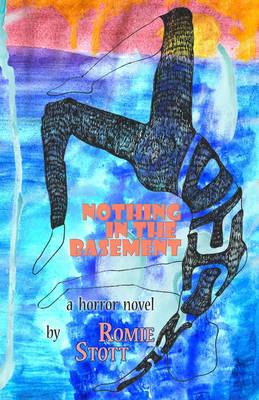
- Retrait gratuit dans votre magasin Club
- 7.000.000 titres dans notre catalogue
- Payer en toute sécurité
- Toujours un magasin près de chez vous
- Retrait gratuit dans votre magasin Club
- 7.000.0000 titres dans notre catalogue
- Payer en toute sécurité
- Toujours un magasin près de chez vous
Description
Richard and Sandra are good people: comfortably overweight, generally honest. They live in a nice house in a safe neighborhood. There's nothing in the basement. They have great jobs. They volunteer at community theaters. They keep up with college friends. There's nothing in the basement. They have adorable dogs and favorite television shows. Sandra nearly drowns in the bathtub. The sewage backs up. Richard's teeth fall out. The dogs are in a frenzy. How many things can go wrong before you suspect that cosmic forces want to kill you? There's nothing in the basement.
Advanced Praise:
I thoroughly enjoyed Nothing in the Basement. I only got to it last night, but I couldn't put it down. It was a one-sitting read! Romie Stott's prose lures you into a seductive stranglehold you won't want to escape. Nothing in the Basement delivers a quietly intense exploration of a failing home and the true horror of an empty marriage. Plan ahead, and have your favorite security blanket ready because you're going to have a hard time escaping this story's grip.
- Trisha Trisha J. Wooldridge (New England Horror Writers Association), author of Where Monsters Play
Look at it one way, and Romie Stott's Nothing in the Basement is a sharp, occasionally ironic, scrutiny of two middle-class, middle-aged people, living in a money pit of a house at peak midlife crisis. It is also a story of the slow decay of environment, relationship, and sense of self. Domestic entropy, but make it haunted. Sometimes it was so startling or frightening, I gasped out loud. The reader seesaws between appropriately appalled sympathy and an odd schadenfreude that is so jubilant and malicious that it must come from without, not within. Surely this book has possessed us.
- C. S. E. Cooney, World Fantasy Award-winning author of Saint Death's Daughter
Bio:
Romie Stott (pronounced like Romeo without the ending o) is an editor at the Hugo, Ignyte, and British Fantasy Award-winning magazine Strange Horizons. Her short stories, poems, and essays have appeared in Analog, Arc, The Deadlands, Atlas Obscura, The Toast, and On Spec.
As a narrative filmmaker (working mainly as Romie Faienza), Romie has been a guest artist at the Institute of Contemporary Art (Boston), the Dallas Museum of Art, and the National Gallery (London). She is the writer/director of the feature film Hayseeds & Scalawags, and is the book writer of the musicals "First, Contact" and The Lady Takes the Mic.
Romie is a Texan who lives in Massachusetts. In her day job, she creates closed captions for live television. In the evenings, she is half of the electronica duo Stopwalk.
Spécifications
Parties prenantes
- Auteur(s) :
- Editeur:
Contenu
- Nombre de pages :
- 200
- Langue:
- Anglais
Caractéristiques
- EAN:
- 9780976654698
- Date de parution :
- 26-08-25
- Format:
- Livre broché
- Format numérique:
- Trade paperback (VS)
- Dimensions :
- 140 mm x 216 mm
- Poids :
- 235 g

Les avis
Nous publions uniquement les avis qui respectent les conditions requises. Consultez nos conditions pour les avis.






